- Home
- James Phelan
The Spy Page 4
The Spy Read online
Page 4
Walker remained silent.
Her eyes were locked onto his, reading him, his thoughts and motives and desires. Her hand remained in her bag.
She asked, “Who are you?”
Walker did not see her as a threat. Her presence here, at this time, was intriguing. She was beautiful, in a classic, Italian way. Forty-ish, possibly late thirties, with a youthful fullness in her face. Dark hair and darker eyes. Tall and shapely. Toned arms. Bright red lips. Everything about her appearance was strong, exaggerated. Her simple summer dress did nothing to suppress the imagination. Desirable and disconcerting. Dangerous. He did not want to do her harm, yet she was in his way, asking questions. In English—she’d pegged him as American straightaway. Walker needed to get out of here, but he had to leave cleanly, calmly, which meant engaging with this woman long enough to make it quietly out the door.
“My name’s Walker. Jed Walker.”
“You are American.”
“Yes.” But you knew that as soon as you saw me . . .
“And, Jed Walker, what are you doing here?”
“Visiting Felix.”
“Why?”
“He’s a friend.”
“You made this mess?”
“No.”
She was silent for a moment, then asked, “Where is Felix?”
“Gone.”
“Where?”
“I’m not sure.”
Her eyes were locked on his, measuring, then she asked, “How did you get in here?”
“The same way you did.” Walker gestured slightly to the doorway behind her, but she did not flinch or look back. Instead she continued to watch him with those big eyes, her long black eyelashes unblinking.
“Do you have a name?” he asked.
“Clara Placido.” Her voice drew him in. Her next words were spoken calmly, carefully. “What is your business here?”
“Like I said, visiting,” Walker replied, moving to the window and checking down onto the street. It was a bright day, with a few cars passing by and pedestrians aplenty. Masses of vehicles and scooters were parked, jammed in so there was not a free space. Illegally parked across the street was a city-works van that he had seen when he entered the lobby, the driver still at the wheel. The position of the rear slide-door had changed. Not shut completely, but almost, as if it had opened and closed but not fully engaged the mechanism. There were no workers in sight. He’d seen three men seated in the back of the van before. They could be the kill team, could be with Clara, could be anyone.
Walker faced Clara and said, “I was visiting a friend. I was too late . . .”
“Too late?” Her expression changed.
Walker gestured to his left, her right, to the open bedroom door.
Clara kept him in her line of vision as she headed for the room.
Definitely time to leave.
4
Walker moved quickly to the open apartment door. There was nothing more to be done here. He needed to leave, now, before Clara reappeared. Before her reaction. Before—
Too late.
Clara let out a muffled scream from the bedroom.
Walker stopped before the doorway.
Footfalls reverberated in the stairwell. It was an old building, with a rickety steel-gated elevator next to a marble-tiled staircase. People were moving up the stairs. Men. Heavy. Fast.
He counted at least three sets of footsteps.
They weren’t cops. Cops would be wary, they would move quietly, they would have cordoned off the street if they knew an armed killer was in here.
This was three men, possibly four, returning to the scene of their crime.
The professionals.
Which meant they had seen him enter the building. From the van.
In five seconds they would be at the apartment door.
Walker closed the door and locked it. The door was as thick and old as the flooring, but the lock and chain were rubbish. He scanned the room for a weapon, and selected the seven iron. TaylorMade, with a slim grip. Felix was left-handed.
Can’t have everything . . .
“What are you doing?” Clara said, emerging from the room.
“Hide in the wardrobe,” Walker said quietly, raising a hand to her as a stop sign. “If I don’t come in for you in five minutes, stay in there, quiet, and don’t come out for an hour.”
Clara paused for less than a second, taking in his demeanor, his stance with the club, the locked door. She went back into the bedroom, and Walker heard the wardrobe shut.
He turned his attention to the locked door. He stood to the left of it, so that when it crashed open they wouldn’t see him until after the club was arcing through the air at face level. He mentally rehearsed his next physical movements. What troubled him was the unknown number of adversaries: three or four? There was nothing to be done about that but adapt on the fly.
In the corridor outside, complete silence.
Go time.
•
Most people would be surprised at the number of FBI agents stationed abroad, working in countries far outside the borders of the United States. The general public may have heard of legal attachés attached to embassies, but not the agents who work on cases that cross international lines.
As a decorated fifteen-year Bureau veteran, Special Agent Fiona Somerville was used to being woken in the middle of the night. She was less used to being woken in the daytime, having been doing a week’s worth of night surveillance operations with local authorities.
This was the first time she had been woken by Brian Sedekis, the CIA Station Chief at the Athens embassy. She buzzed him up, opened the door to her studio apartment and went to the bathroom to splash cold water on her face.
Somerville was in country on an open-ended assignment, investigating money-laundering services that had come to light after the country’s economy collapsed. She and her colleagues had discovered that several Greek banks had more foreign money passing through with links to organized crime, terrorist outfits and foreign intelligence services than they handled in local currency. She had spent the better part of two years chasing trails all around the Adriatic and beyond. It was a plum job, and not just because of the exotic location with its great food, amazing weather and cheap cost of living. Organized crime and big money deals were still the benchmark in the Bureau for how reputations were made, and finding international terrorist links to that kind of action was the icing on that cake. The fact was, nothing made promotion mythology better than bringing down an international criminal kingpin, and Somerville felt she was closing on several with this op by using good old investigate work: following the money.
Of French-Quebec heritage, Somerville’s father had been in the Bureau, while her mother was the atypical nuclear-family wife raising four kids and working part-time at the elementary school library at some of the places they were stationed: Houston, Atlanta, Washington, Seattle. Her father had been a good worker but never driven like she was: he wanted little to get in the way of family life and a steady, long career. That career had been cut short by four full-metal-jacket rounds from a Mac 10 during a siege in Utah. Somerville didn’t have time for anything but putting bad guys away.
“You were asleep?” Sedekis said as he walked in, his characteristic shuffling of feet a legacy of a wrecked back from an IED in Iraq a decade ago.
“Workin’ the night shift,” Somerville said. She saw that he carried two takeaway coffees in paper cups: this was a serious house call.
“Right,” he said, looking around the apartment.
Somerville’s washing was hung on an indoor line across one length of the living room. Last night’s clothes were in a heap on the floor. Empty food containers littered the coffee table. The dining table was covered in case notes. Her bed was unmade. She took the coffee from Sedekis and sat on an armchair on the opposite side of the room to her washing, making him turn toward her to maintain eye contact.
“Sorry to bother you,” Sedekis said. “But I thought you’
d want to know what a little birdie has seen today.”
“Oh?” Somerville said, sipping the coffee and feeling a little fresher, a little more awake.
“I couldn’t talk about it on the phone, and I was in the neighborhood . . .”
“Okay, out with it.”
His face broke into a grin that couldn’t be shaken.
“You know you’re a terrible poker player,” Somerville said.
“I know, you cream me every month,” Sedekis replied.
“So . . . is it good news?”
“We found a ghost.”
“Who?”
Sedekis’s smile grew just a little wider. “Jed Walker.”
5
Walker had exceptional hearing for soft sounds, which was surprising considering the amount of time he had spent at the range and in kill houses and on the front line, where most soldiers were boomed and blasted and from age thirty their hearing began to wane. Indeed, many front-line operators took a little side payout for hearing impairment when they left their corps.
Not Walker. Not for the little stuff.
At school it had enabled him to prank better, cheat easier and hear the opposition’s play in whispered football calls. Now it told him to be alarmed.
He heard English being whispered on the other side of the apartment door. At least three voices. American accents.
That’s interesting . . .
They counted down from three, at which point Walker settled his pose: a pace back from the door’s swing, feet shoulder-width apart, body twisted like he was about to tee off.
On two, Walker held the club double-handed and arced it back behind his right shoulder to get into a full baseball swing.
Wrong club for the sport, but it’ll do.
On one, he started his swing. He was going for a homer. Out of the park. Beyond the car park. There was no way the first man through the door would get up again, not in a hurry, maybe never.
The door burst open, the lock and chain proving as useless as they had looked. The first man rushed into the room blind. He had a pistol, a Beretta .45 with fat suppressor, held out in front in a double-handed grip, pointed forward and down.
The murder weapon.
The seven iron caught him on the bridge of the nose and the left cheekbone. The kinetic energy of the swing forced his head back even as his feet carried him forward. Within the same second his feet had left the floor and he was airborne, landing flat on his back as the pistol clattered past Walker and through the open bedroom doorway.
Walker was moving too, a constant, fluid motion. He continued through his swing and carried the momentum a couple of paces to his right, pivoting around on his front foot so that by the time the second assailant was through the door he was greeted with a right elbow to the temple. This guy was armed with a taser, and it dropped like a stone from his hand. He wobbled a little unsteadily on his feet, a stunned jig, in which time Walker brought the club down through the air in a vertical swipe. The man had moved enough that it missed his head, though the downward force was enough to shatter his collarbone and snap the club in half. He went down, hard, and on the way his face met Walker’s rapidly rising knee. Lights out.
Two seconds, two down.
The third assassin paused in the doorway. He was smart enough to be wary, but not smart enough to turn and run. He was the biggest of the trio, the kind of mass that came with injections and bulk protein and big weights. Bigger than Walker and maybe ten years younger. He looked at his two comrades—the first out cold, and the second writhing in pain and engaging in a subconscious flight response, doing slow circles to nowhere on the polished floor, his brain sending his legs primitive signals to flee but his body unable to properly comply. The big guy saw this carnage and Walker saw the wheels in that big fat head turning.
Thinking hard, but not enough.
Walker crouched down and picked up the other half of the club, an improvised weapon now in each hand. His eyes never left the third man.
For his part, the big guy took a step inside the room and pulled a blade from a sheath on his belt. A tactical, black-anodized KA-BAR, standard US Marine issue back in the day. A combat knife, one cutting side only: seven inches of American-made razor-sharp steel designed for killing. It looked tiny in the big man’s oversized fist.
“You don’t have to do this,” Walker said.
The guy took a couple of steps inside.
Walker took two steps back, his eyes glued to his opponent, his body taking in every slight move they both made and his subconscious registering that there were no others following this guy. This was it. Three bad guys, not four. He gripped both halves of the broken golf club.
Walker said, “What’s your name?”
The big guy spat at him. Shifted right. Walker mirrored him.
“Make this easy,” Walker said. “Talk. Tell me where you’re taking Felix’s body. Or the chip in his head. Where’s that going?”
“Fuck you.”
“Tell me,” Walker said. “And I’ll let you turn around and go home to Momma. Go back to picking corn and taters. With what brains you got left in that planet-sized head of yours.”
The guy glanced at his comrade doing the circles on the floor.
Walker said, “Last chance to talk, hombre. Where’s your drop point?”
Bloodlust shone in the eyes staring back at him. He’d settled in for a fight.
Damn. Walker had worked with plenty of these guys, those who had become accustomed to killing, were conditioned to it, thrived on it. They didn’t value their lives like they should, not when the lust overcame them. At The Point, the finishing school for CIA field operatives in North Carolina, Walker had trained enough paramilitary guys like this. He’d broken them, busted them out at the first round. There was no place on A Teams for men like that. This guy was a dropout.
Certainly not CIA.
So, this was the B Team. They were good, but not the best. But good enough to put up a decent fight. Most likely ex-Marine, given the bulk and the haircut and the choice of knife. But this wasn’t war, nor was it training at Camp Pendleton, where the big guy had been introduced to the knife and how to fight to the death. This was closer to the no-rules-out-the-back-of-the-gym-after-school-time stuff, to sort out some testosterone. Walker had lost a few of those back in high school. Never any since. Never when a knife was involved.
“Why don’t you tell me who you’re working for . . .” Walker said. “Tell me, tiny, or I’ll have to turn your head into a putting green.”
He was hit with stony silence in return. Walker had found that the biggest guys were often the least talkative. Marines especially, and this guy was a jarhead from a mile away.
He came at Walker, the knife in his right hand in a forward grip, breaking the golden rule of knife fighting taught in the Corps—namely, never charge with a forehanded knife grip, especially when you’re up against someone you know is capable and expecting it. This told Walker that his opponent had been out of the service a while, and had forgotten that when you pull a knife it’s do or die.
Walker retreated out of the weapon’s strike zone, a simple shift of weight to his back foot. Before the guy could comprehend and compensate for a follow-up attack, it was too late.
Walker’s offensive move was as swift as it was absolute. With nothing more than a shift back to his front foot and raising the club’s handle in his closed fist, the fight was over: the ragged end of the broken golf club’s titanium shaft buried into the B Teamer’s left eye socket, stopping only when it met resistance at the back of his skull.
The jarhead fell like a dumped puppet. Game over.
Three guys. Three moves. Each exact and necessary in its own way.
Forty seconds, all told.
Walker moved to the guy with the wrecked shoulder and flattened nose, who was now conscious and still on the floor. With each slow concentric motion he’d inched toward the apartment door. Walker checked through the guy’s pockets—nothing.
> Walker picked up the knife and knelt down near the guy, driving the thick blade hard into the timber floor near his face as he spoke. “I don’t suppose you want to tell me who sent you?”
The guy started to shake. With his head tilted to the side, he looked up at Walker.
Nothing. Nothing, but shock and a little fear.
“Have it your way,” Walker said, applying squeezing pressure to the guy’s shattered collarbone. He could feel the compound fracture under the skin, grinding little splinters that would take a surgeon hours to clean out. “What did you want with Felix Lassiter?”
The guy gritted his teeth.
Walker knelt close to him and pressed against the fracture again. The guy writhed and lunged at Walker with his good hand, which Walker pinned to the ground.
“See your buddy there?” Walker motioned to the amateur golfer lying in a pool of his own blood. “I’m gonna knock you cold and the authorities are going to find you here with him. That’s gonna take some explaining.”
“Fuck off,” the guy said.
“Ah,” Walker replied. “You’re from Connecticut. What’s a well-bred boy like you doing hanging out with tater-heads like these? Hmm? Why’d you kill Lassiter?”
Silence.
“Where are you taking the head chip?”
Walker squeezed. The guy cried out in pain.
“Talk.” Walker pressed his foot on the guy’s shoulder—
“Get away from him,” a voice said.
Walker looked up.
Clara stood in the bedroom doorway, the .45 in her hands, pointed straight at him.
6
The Beretta PX4 Storm was a match-grade semi-automatic pistol made of polymers and steel inserts. Fully loaded and fitted with a suppressor, it weighed close to one and a half kilograms. It wasn’t the sort of pistol many people—apart from those who trained with it twenty-four-seven—could hold out, aimed, for an extended period.
But Clara’s hands were steady. Her stance was true. Her aim was dead on Walker’s chest. It looked as if she could stay like that for a while.
“What are you doing?” Walker asked, standing slowly and taking a long step toward her. “Clara—give me the gun.”

 10
10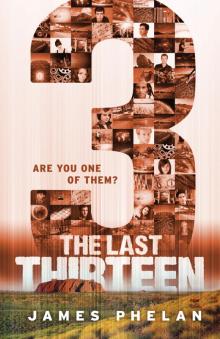 3
3 Survivor
Survivor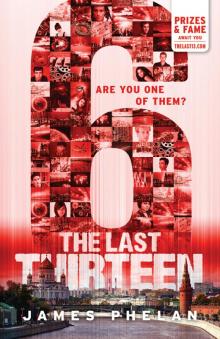 6
6 The Hunted
The Hunted Quarantine
Quarantine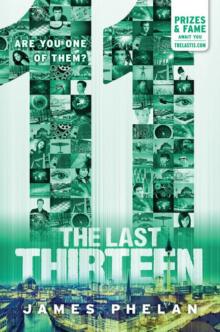 11
11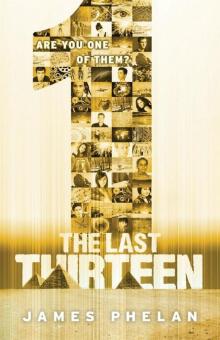 The Last Thirteen - 1
The Last Thirteen - 1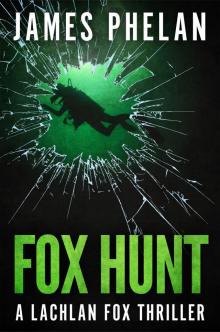 Fox Hunt
Fox Hunt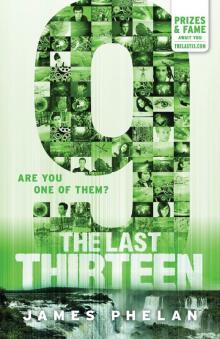 9
9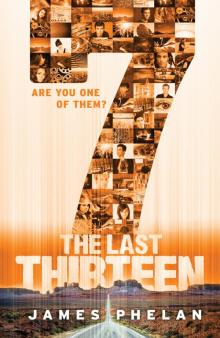 7
7 Patriot Act
Patriot Act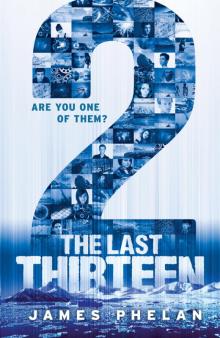 2
2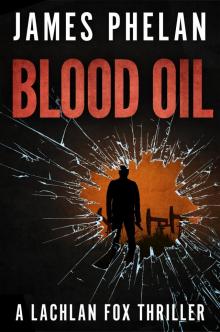 Blood Oil
Blood Oil Red Ice
Red Ice Chasers
Chasers Liquid Gold
Liquid Gold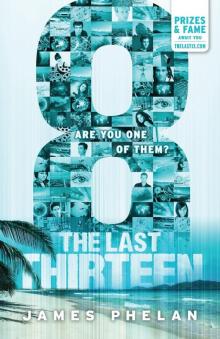 8
8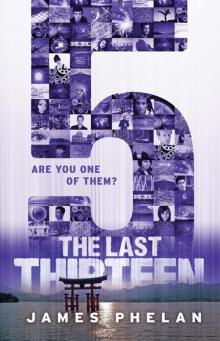 5
5 The Spy
The Spy Kill Switch
Kill Switch Dark Heart
Dark Heart